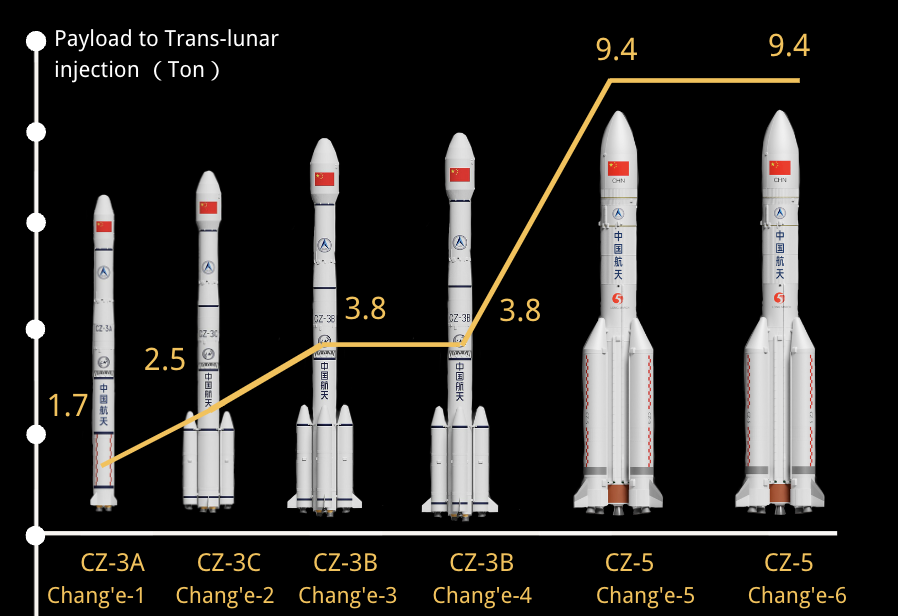1.Introduction Visual Webpage
2.International lunar exploration comparison
This chart shows the performance of various countries in lunar exploration missions:
--Europe: One mission in the 2000s.
--Russia: Missions mainly concentrated in the 1960s and 1970s, totaling 50 missions, with new missions around 2020.
--United States: Similarly, a significant number of missions in the 1960s and 1970s, totaling 47 missions, with new missions in the 2000s and 2010s.
--China: Actively engaged in lunar exploration since the 2000s, especially in the 2010s and 2020s, conducting a series of missions totaling 7, showing a strong upward trend, and becoming a significant force in global lunar exploration.
3.China capabilities in lunar exploration

This image shows the progression of China's lunar mission rockets, from Chang'e-1 to Chang'e-6. The payload capacity to trans-lunar injection has significantly increased over time.
This illustrates China's advancements in space technology and increasing capabilities in lunar exploration.
4.China seeks deeper cooperation

China's lunar exploration program is also seeking extensive international cooperation. Not only will Chang'e-6 carry payloads from four countries, but future missions like Chang'e-7 and Chang'e-8 will also involve deeper collaboration with countries such as the United Arab Emirates and Russia.
